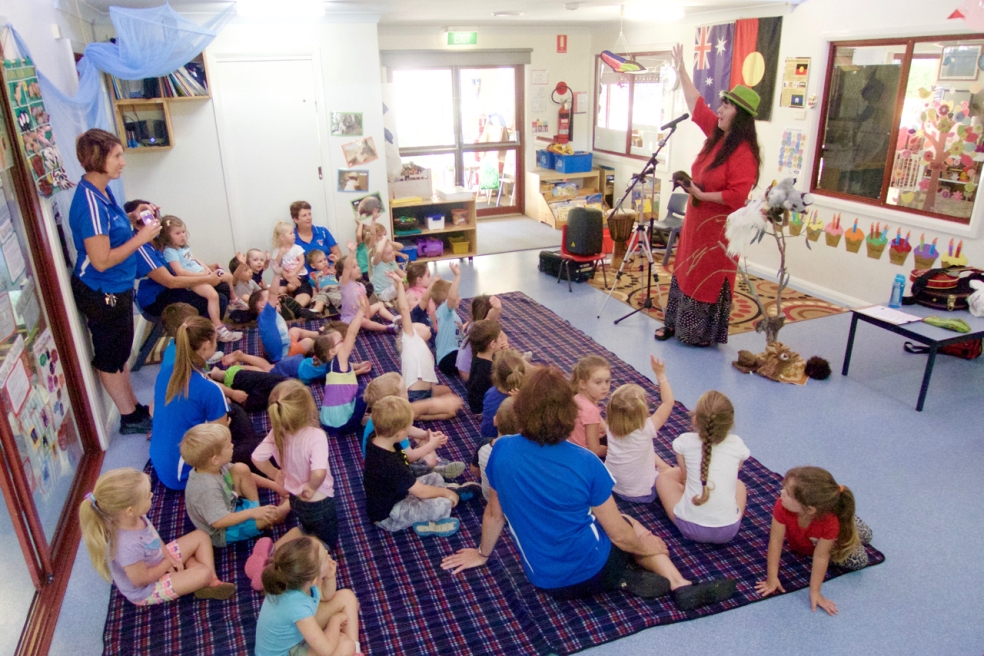Part 2.
I am not here to give you instructions on how to do your job. You have been presenting Storytimes and Rhyme times for many years now. You have established your routines, your protocols for listening and interacting, you’ve built up a rapport with the parents and carers and the little ones know how it all works, even if they don’t know all the stories, songs and rhymes you will be presenting. What then is my role in giving a workshop to you?
There are only two things I want to impart: introducing you to material that you can choose to incorporate into your sessions, thereby expanding your repertoire of oral literature and secondly, helping you discover your storytelling philosophy and your particular way of sharing it.
The first I do by providing participants with CDs and/or booklets with material that they can go through in detail, at their leisure. During the allotted three hours for a workshop there is time for briefly going through it and demonstrating it. If there are specific gestures or Makaton keyword signing to accompany particular rhymes then I will demonstrate them, however I have no expectations that participants will have immediate competency with learning words in another language. It takes time and practice and you need to feel confident. If, however, someone points out you ‘got it wrong’ then this is an opportunity for their participation and may open up the possibility of having a signer at storytime. The same may apply when you use words other than English. The Auslan Signbank is an excellent website for learning Auslan words.
auslan.org.au
Exploring storytelling philosophy is more challenging because that entails asking participants to think beyond what they are already presenting, to look not only at why they do what they do, but what more of themselves they want to give.
An exciting discovery at a recent workshop with Moree libraries was that half the participants were musicians and yet they had not brought their instruments to storytime or baby bounce. Their musicianship was part of their lives outside their work and they hadn’t thought of including it in their sessions. This is going to change now.
It brings me to my contention that library workers are mentors and educators for parents and carers. Not only do they expose them to oral literature in a format that can be easily replicated in the home i.e. the content is repeated and built on each week, they also share information in a friendly and accessible way, on the importance of reading, rhyming and singing with children and the mutual joy it brings. In addition they also act as another adult who can furnish a child with a positive listening experience.
What if the library worker brings their cello or their keyboard or their guitar to storytime and plays calming music, to prepare the children for story listening or a lullaby at the end of Baby Bounce? What if a jolly song is played as a goodbye song, or music is used to create a mood when a story is being read? All of these things are possible when music is included. My role is to remind library workers that they are the most important resource the library has to offer the general public. Not only do they source, navigate, translate and advocate for all library users, they also bring their own stories and skills to inform and entertain their listeners.
There’s a library of information on the importance of oral literature in assisting the growth and development of babies and young children, and in my workshops I assume that most storytime presenters are familiar with it. Knowing what you are doing is important but knowing why you, specifically, are doing it, is even more so.
The primary reason I present storytimes to young children and their parents and carers is because I want to impart a positive listening experience… and because it’s fun.
